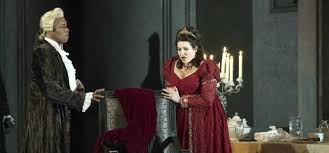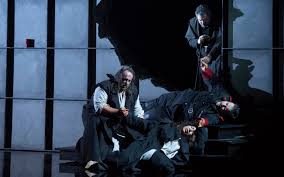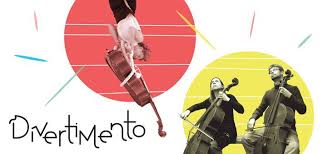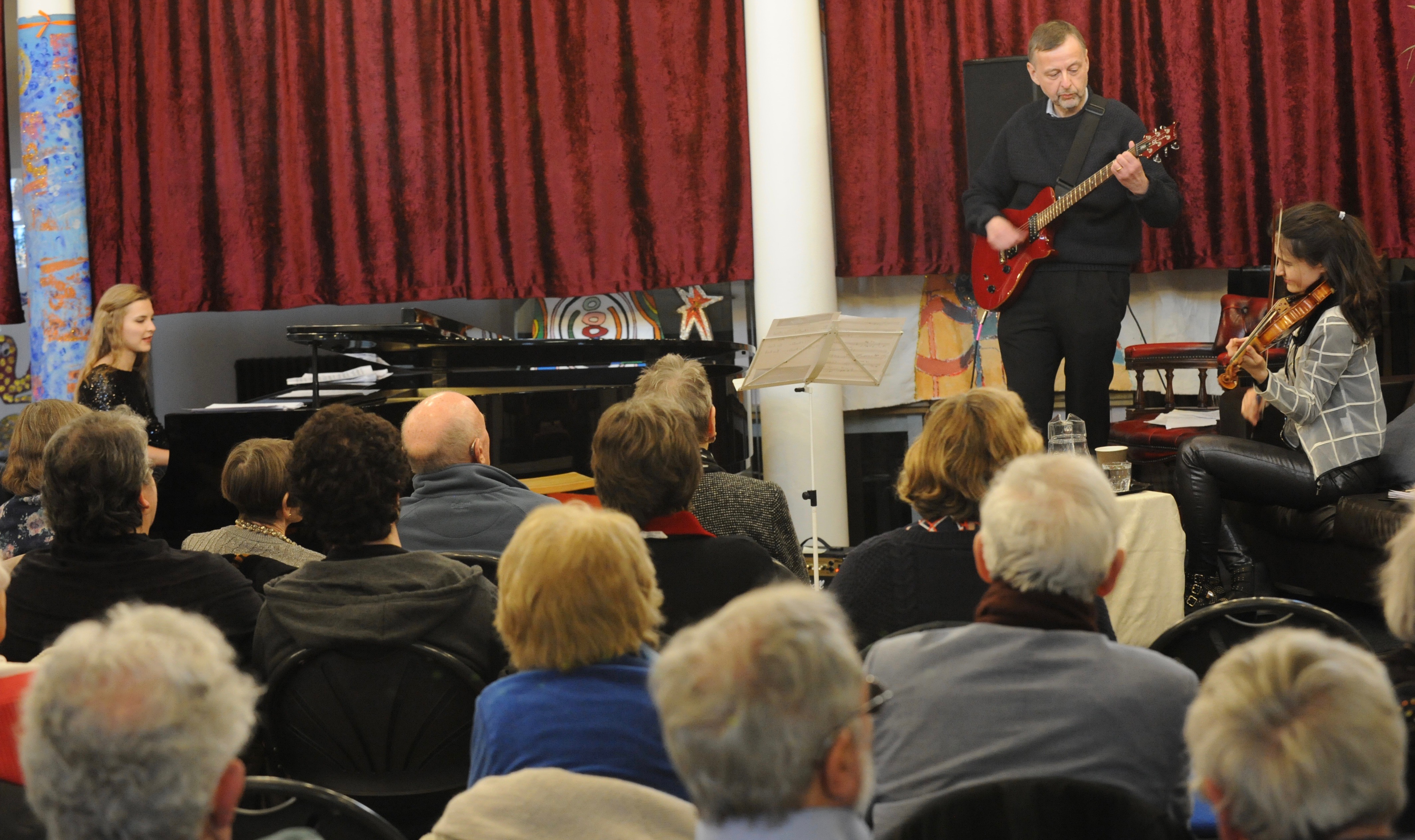Milton Keynes Theatre, 6-7 April 2018
Tosca always has been something of a rabble rouser and if Michael Blakemore’s production is almost two decades old it still works with remarkable clarity. Bringing the soloists close to the front of the stage for much of the time helps with the musical excitement as well as ensuring that nuances of acting make their point – where there are any. On this occasion Claire Rutter was an exciting and vibrant Tosca, her voice flooding the theatre easily but showing real sensitivity for Vissi d’arte. Mark S Doss was a creepily malevolent Scarpia, aware of his power to the point where he seemed continually relaxed until the final moment which came to him totally unexpectedly. Claire Rutter’s vicious attack – I can’t recall a Tosca stabbing so often – was dramatically justified and highly effective.
Unfortunately, though Hector Sandoval sings Cavaradossi with some sense of heroism, his acting is stilted and he clearly prefers to sing directly to the audience (to say nothing of the conductor) rather than to his partner.
It was a pleasure to find Donald Maxwell as the Sacristan and he turned up again the following evening in clerical garb as Fra Melitone in David Poutney’s new production of La Forza del Destino. Some slight tinkering with the score made it flow with ease though there is no getting away from the fact that the work – for all its magnificent music – is a flawed masterpiece. Happily the two principal singers, Mary Elizabeth Williams as Leonora and Gwyn Hughes Jones as Don Alvaro, were magnificent, with thrilling tone throughout the evening; a wonderful combination of musicality and dramatic impact. Both made much of the wide emotional range of the score, Mary Elizabeth Williams as convincing in her tortured moments as in the deeply reflective sections when she finds peace.
Justina Gringyte is given more to do than usual as Preziosilla as she turns up regularly throughout the evening in the guise of Fate, banging her staff in time to the music. He voice and acting are fine even if it is not always clear what she is trying to do. Miklos Sebestyen doubles up as Calatrava and Padre Guardiano, though surprisingly David Poutney does not draw on the obvious psychological impact of this casting. His singing brings a gravity to the monastic scenes which the staging often lacks.
Luis Cansino sings well as Don Carlo but his presence is as unconvincing as his acting.
While much of David Poutney’s production works smoothly, allowing the story line to unfold with ease and credibility, his approach to the chorus is a different matter. Where soloists appear naturalistic even if the narrative strains the imagination, the chorus are difficult to take seriously if only because of the poor costuming. Uniforms with masks are the order of the day and not until the final scene in the monastery are they allowed any sense of humanity. Verdi’s sublime writing for the central communion scene is overridden with the monks in heavily blood-stained robes and Leonora is forced into a walk of shame which is entirely out of keeping with the score.
That Verdi’s score can overcome the unevenness of the production is a tribute to its quality no matter how difficult it continues to be to stage effectively.
On both nights Carlo Rizzi was in the pit, producing seemingly effortless quality from the WNO orchestra. The Milton Keynes theatre is blessed with a large pit and a fine acoustic, able to work with the bombast of both scores as well as their reflective, intimate moments. This was the first of three new Verdi productions planned over three years. Let us hope Carlo Rizzi will be returning for all of them.




